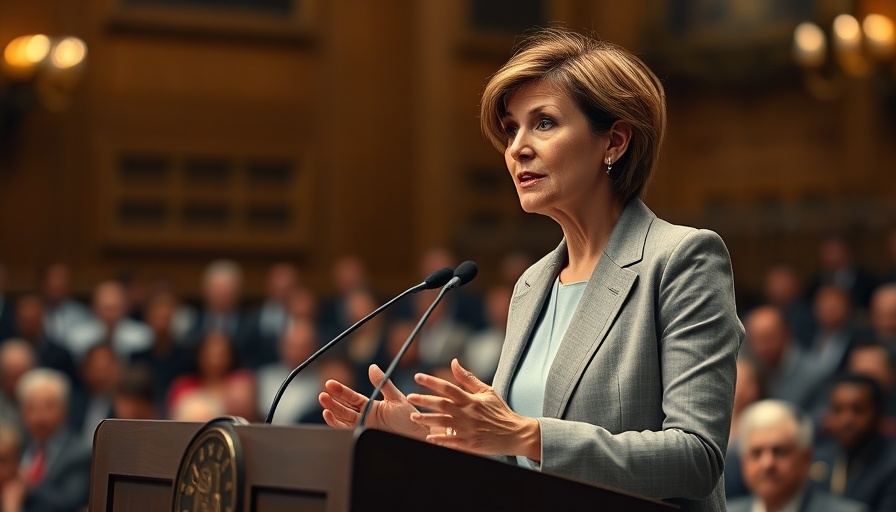
Trump's Decision: A Strategic Withdrawal
In a surprising turn of events, President Donald Trump has officially withdrawn his nomination of Rep. Elise Stefanik for the role of U.S. ambassador to the United Nations. This move comes as the Republican caucus holds a precarious majority in the House, with 218 seats against the Democrats' 213. The weight of legislative responsibility has made the decision to pull back Stefanik's nomination a significant strategic consideration.
The Importance of Every Vote
Stefanik's vote has proven crucial for advancing Trump's legislative agenda, making her a valuable ally in the House. Trump has emphasized that maintaining every Republican seat is essential for the success of their policies. In a post on Truth Social, he stated, “As we advance our America First Agenda, it is essential that we maintain EVERY Republican Seat in Congress.” These remarks underscore the delicate balance of power in Congress and the potential impact of any member's departure.
Concerns Over Legislative Stability
The timing of Trump's decision seems rooted in fears that Stefanik's confirmation could destabilize his current legislative efforts. Over the last two months, the Senate has held off on voting on her nomination despite a favorable recommendation from the Senate Foreign Relations Committee, reflecting the cautious approach to maintaining a unified Republican front.
The Path Ahead for Stefanik
While Trump noted that “there are others that can do a good job” at the U.N., his decision raises questions about what lies ahead for Stefanik. A potential return to pursuing higher government roles or focusing on her responsibilities within the House remains to be seen. Nevertheless, her political future is likely to be influenced by the overall performance of the GOP in Congress and their ability to navigate the challenges ahead.
Conclusion: A Reminder of the Constant Political Maneuvering
As taxpayers, it's important to recognize how individual political decisions impact legislative agendas that ultimately influence our financial landscape, including tax legislation. We must stay informed and engaged, understanding the importance of each vote in Congress to not only lower our taxes but to ensure that our representatives work in our best interest.
 Add Row
Add Row  Add
Add 




Write A Comment